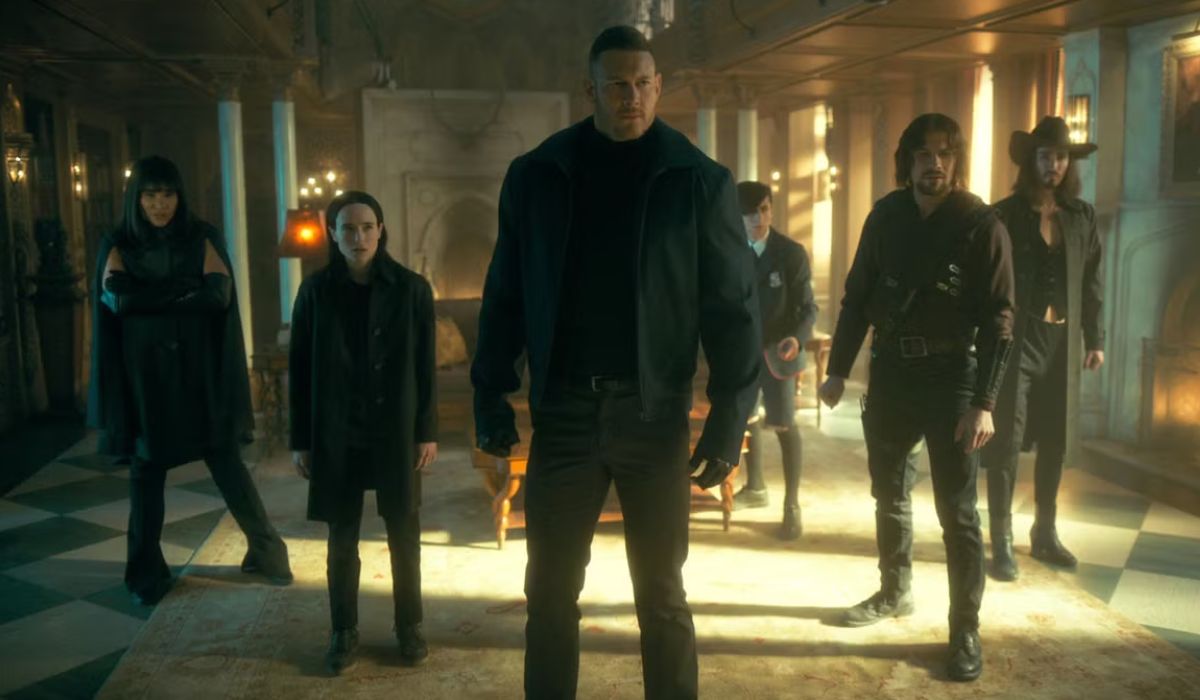
The arrival of “The Umbrella Academy” significantly altered the superhero genre landscape in an unprecedented manner back in 2019. Its initial season presented a fresh take on the conventional superhero narrative by introducing an unconventional family with various quirks, powers, and a blend of dark humor and genuine emotion that resonated deeply with viewers. However, even the shiniest things lose their luster over time, and as the series progressed, the elements that initially captivated audiences and cultivated a dedicated fanbase began to unravel.
The recipe was effective for the first two seasons, but when season 3 was introduced, it attempted to redefine the universe, ultimately revealing the first noticeable fissures – and from there, the trajectory took a turn for the worse.
As a die-hard fan of the series, I was pumped about Season 3 and its introduction of the Sparrow Academy, a fresh batch of superpowered characters promising to stir up the narrative. The concept seemed rock-solid on paper, but sadly, the execution left much to be desired. Newcomers felt one-dimensional, lacking the depth and complexity I’ve grown to expect from this show.
Moreover, the entire season felt like a mad dash, attempting to balance too many storylines without giving any the time and attention they deserved for proper development. A prime example: Ben (Justin H. Min), whose drastic makeover from scruffy to clean-cut left me scratching my head. The transformation was intentional on the part of the production team, but for fans like myself who closely follow the show, such details matter – especially when they don’t contribute to the plot or feel thoughtless and sloppy.

Discussing changes within the series, Vanya’s transformation to Viktor bears resemblance to Elliot Page’s personal transition in real life. This change was significant and well-supported, yet it didn’t flow as seamlessly as expected, appearing more like a hurried attempt to incorporate it rather than allowing it to develop organically. Additionally, while the music had its strong points (such as that fantastic “Footloose” moment), it didn’t have the same impact as before. The CGI also saw a decline; some effects seemed outdated or poorly executed.
While Season 3 wasn’t an outright disaster, it seemed to be a time of instability. This is indicated by the data, as critics generally gave it a thumbs-up (91% on Rotten Tomatoes), but the audience response dropped significantly to about 54%. This indicates that viewers were growing increasingly dissatisfied.
Why Umbrella Academy Season 3 Was A Letdown

It appears that several factors contributed to the issues encountered, but it’s worth noting that the pandemic significantly affected things due to its timing. Budgets became stricter, plans had to be adjusted, and previously coherent ideas lost their focus, resulting in a jumbled mess. The season attempted to tackle too many aspects simultaneously, which led to important characters like Allison (Emmy Raver-Lampman) and Luther (Tom Hopper) being sidelined, while the Sparrows were introduced but only added to the confusion as if they were merely filling screen time. The pacing was inconsistent, with some episodes moving too slowly and others rushing through crucial moments. This uneven pacing weakened the emotional core of the story, giving it a scattered feel.
Season 4 had an opportunity to tidy up matters, but it didn’t; instead, it worsened the situation, leaving many viewers in disbelief. The last season was met with harsh criticism, garnering only 56% approval from critics and a brutal 19% from audiences. The comedy became excessive, featuring outlandish gags and bizarre scenes such as an unexpected fixation on “Baby Shark”. The relationship between Five (Aidan Gallagher) and Lila (Ritu Arya), which was awkward and troubling, added to the confusion. Moreover, production issues were apparent with continuity errors, hasty editing, and a general sense of disarray. To top it off, the final plot twist was questionable, as it annihilated the universe without any clear justification, negating all prior developments.

Ultimately, Season 3 wasn’t just a minor misstep, but a clear signal of trouble. It served as a blaring siren warning that the show was veering away from what made it unique and captivating. Regrettably, no one seemed to heed this warning, resulting in characters acting inconsistently with their established personas, the narrative losing its emotional depth, the rhythm becoming disjointed to the point where viewers found it difficult to follow the unfolding events or predict future ones, and a significant lack of closure (leaving viewers feeling that the additions made during Season 3 were pointless).
Despite its initial promise and intriguing premise, The Umbrella Academy struggled to maintain its momentum, much like navigating through a long, dark tunnel without an exit in sight. This predicament has led some viewers to draw parallels with the disappointing turn of events in Game of Thrones. The show’s decline serves as a stark reminder that even brilliant concepts can crumble when execution falls short. It’s disheartening, and it’s hard not to feel a sense of nostalgia for something that once resonated deeply but now seems foreign. In essence, The Umbrella Academy is a tale of a story cut short.
Read More
- How to Get the Bloodfeather Set in Enshrouded
- The Pitt Season 2, Episode 7 Recap: Abbot’s Return To PTMC Shakes Things Up
- Gold Rate Forecast
- Every Targaryen Death in Game of Thrones, House of the Dragon & AKOTSK, Ranked
- 4 TV Shows To Watch While You Wait for Wednesday Season 3
- One of the Best EA Games Ever Is Now Less Than $2 for a Limited Time
- Where Winds Meet: How To Defeat Shadow Puppeteer (Boss Guide)
- Felicia Day reveals The Guild movie update, as musical version lands in London
- 10 Movies That Were Secretly Sequels
- Best Thanos Comics (September 2025)
2025-07-19 23:40